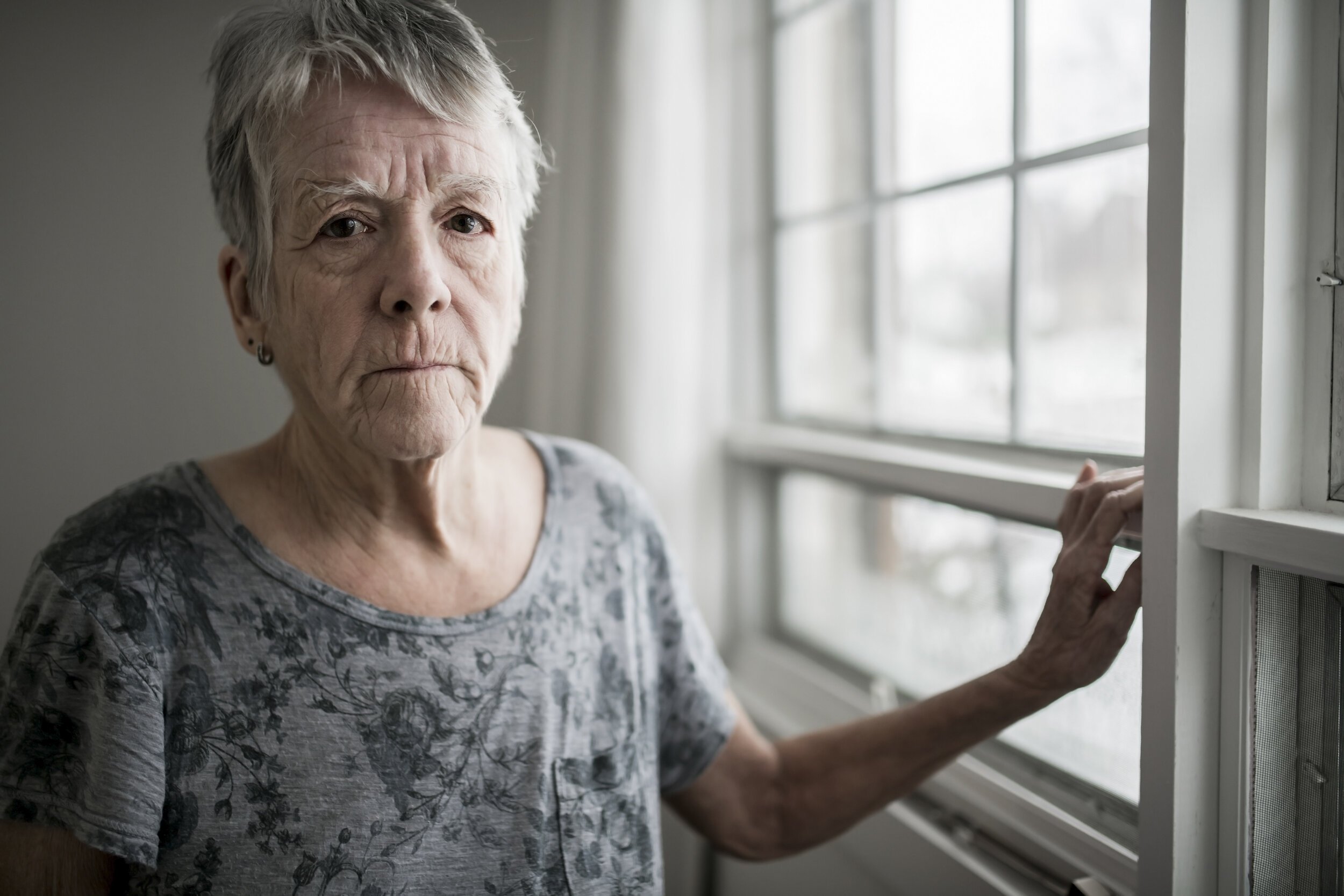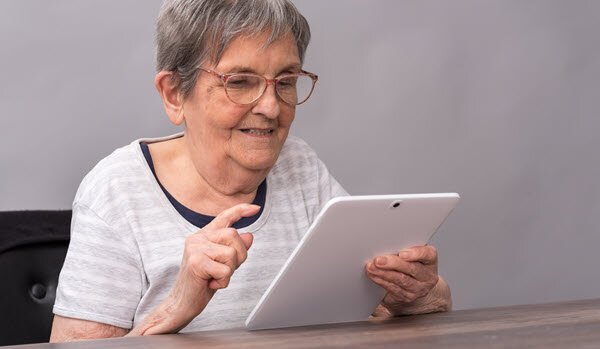Sharpening Seniors’ Minds While Staying Safe at Home
One downside to our senior friends and loved ones spending so much time alone this year is that quality of life can really take a turn. Here’s a helpful list of strategies to maintaining healthy memories and active minds. And, the best part, all of these activities can be done safely at home.
Signs to Watch for This Holiday Season - Virtually or In-Person
Whether you’re able to see your aging loved ones in person or on video call, please review these warning signs to keep a lookout for. While we’ve kept our senior friends safe from COVID-19 through social distancing, the isolation is really taking its toll. This checklist will help you easily determine if your loved one could use some help – and companionship. If you’re visiting by video, see if your loved one can safely show you around their home to check for some of these signs.
Thanksgiving in 2020
Well, friends, we know Thanksgiving won’t look like holiday celebrations in the past. You’ve already made the hard decisions and the tough calls, and even though it hurts, you did the right thing.
Have you made your virtual gathering plans yet?
October 8 is National Depression Screening Day
While depression is common, it’s NOT a normal part of aging. This Depression Screening Day, take a look at common symptoms and determine if you or your loved one needs help.
September is Healthy Aging® Month — and a great time to GET MOVING again!
Feeling frustrated with your exercise routine while trying to stay safe? Here’s our advice for Healthy Aging® month!
Meet Your Brain — Your New Social Distancing Best Friend
Sure, we’re all tired of social distancing. This is not the world any of us intended to be living in. But to stay safe, we need to keep that social distancing thing going at least a little longer — especially for our vulnerable senior loved ones.
Across the Country or Around the Block — “Long Distance” Caregiving in the Age of COVID-19
For years now, long distance caregiving has been a growing trend as more and more seniors choose to retain their independent lives while adult family members move away in pursuit of careers and relationships. But in the age of COVID-19, even around the corner can mean long distance. Here’s what you need to know.
Overture's COVID-19 Coordinator
You may know Cherae Slack, R.N., as one of our nurse liaisons, but with COVID-19 threatening our senior friends and loved ones, we immediately designated Cherae as our COVID-19 Coordinator. In this role, she supports staff and families, ensures proper protocol, and stays up-to-the-minute on local, state, national, and regulatory recommendations and mandates.
May is American Stroke Month — an observance with increasing COVID-19 resonance
The current COVID-19 crisis is a rapidly changing situation, and we encourage you to check the links below for up-to-date information from the Centers for Disease Control and Prevention (CDC) and the American Stroke Association, a division of the American Heart Association
This May, please join us in celebrating Older Americans Month
Our older relatives, friends and neighbors have been most at risk during the COVID-19 crisis. That risk continues for them, even as states around the country — including our own Texas — begin to reopen. As some of us reclaim more normal lives, our elderly loved ones are still facing both a viral pandemic and a very real pandemic of isolation and loneliness. Let us take this month to recommit to reaching out and to providing companionship and connection in any way possible.
April Is National Occupational Therapy Month — And This April, Occupational Therapists Need Our Help
Let’s give a hand to the occupational therapists who work hard to make the lives of our senior loved ones more comfortable and fulfilling. If you are a senior caregiver, you know the valuable services that occupational therapists provide — from training in basic mobility to help with domestic tasks, self-care routines and important communication, recreational and social skills.
Important Information on Parkinson’s Disease Preparedness During the COVID-19 Pandemic
Our senior friends and family members have always been most at risk to suffer neurological symptoms from Parkinson’s Disease. Now they are also most at risk for serious complications from COVID-19 viral infections.
April Is Stress Awareness Month, and These Are Stressful Times
We know why you are here, reading this. We know that caring for an aging parent or loved one has placed you under tremendous stress during the current COVID-19 crisis. We know that you worry about caring for high-risk elderly family members, and that you obsess over the conflicting need to keep them physically separated from the rest of your family.
Love Letters to Isolated Seniors and Front Line Healthcare Professionals
Thank you to our area children who answered the call to send their beautiful artwork to our local, isolated seniors and our front line healthcare workers.We're still collecting submissions! Email paige@overturehomecare.com if you'd like to lift someone's day.
A Concise Guide to Grocery Shopping for Seniors in the Age of COVID-19
It is hard to remember that just a few weeks ago the major concerns we had with grocery shopping for our senior loved ones related to healthy dietary choices and mobility.
Those issues are still concerns, of course, but we have new issues now in irregular store hours, worries about daily restocking of basic products and the recommendation that we keep shopping trips and social interaction in stores to a minimum. Getting a handle on healthy eating for older adults is still essential — and we’ve included a link to a downloadable document that offers dietary and nutritional guidelines from the National Institute on Aging — but it’s also important to have a plan for safely and reliably fulfilling those dietary needs before heading out the door.
Your Needs and Our Care Are Essential
We want to assure you that Overture employees are designated as essential home health care service providers.
March 24 Is The American Diabetes Association Alert Day®
Living with diabetes can be tough, but caring for an elderly parent or loved one struggling with the diagnosis can be just as tough. Type 2 Diabetes, the most common form of the disease among aging adults, responds well to careful management. But that management involves lifestyle and diet changes, and such changes can be hard to accept for seniors already reeling from a discouraging diagnosis.
Physical Social Distancing Does Not Have to Mean Mental Social Isolation for Seniors
In response to the coronavirus disease pandemic, we are now purposefully distancing seniors from their friends, family and others meaningful to them in order to keep them safe. This is an important health measure for our vulnerable senior population, and we stand behind it 100%.
But we are also concerned about the effects such physical isolation may have on our older loved ones. According to the National Institute on Aging (a division of the National Institutes of Health) research has linked social isolation to higher risks for a variety of physical and mental conditions. These conditions include obesity, high blood pressure, heart disease, anxiety, depression, cognitive decline and Alzheimer’s disease. They also include a weakened immune system — exactly the opposite of what our seniors need to protect themselves in the current crisis.
During this confusing and stressful time, we are here to help.
CV19 - White House Instructions
White House instructions and guidelines on slowing coronavirus (COVID-19).



















